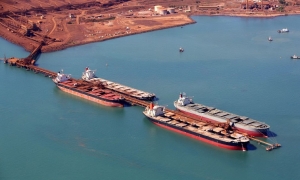


(Posted on 17/08/20)
The World Trade Organization’s (WTO) Secretariat has published a new informational note warning of possible increases in trade costs resulting from disruptions precipitated by the COVID-19 pandemic.
The WTO report examines the pandemic’s impact on key components of trade costs, particularly those concerning trade policy, travel and transport, and uncertainty created by COVID-19. It also identifies areas where higher costs may persist, even after the pandemic is contained.
The WTO report stated that trade policy barriers and regulatory differences are estimated to account for at least 10 per cent of trade costs in all sectors. These include tariff and non-tariff measures, temporary trade barriers, regulatory differences and the costs of crossing borders, as well as other policies that adversely affect trade, such as a lack of investment facilitation or of intellectual property protection. The report notes that while COVID-19 has motivated both trade-restricting and import-facilitating changes in tariffs and regulatory practices for products needed to combat the pandemic, these measures so far have affected only a small subset of products. A crisis-induced shift toward the digitalization of customs and regulatory procedures to reduce physical contact potentially could reduce the associated trade costs in the long-term, WTO stated.
The WTO report also cited the high levels of uncertainty as a factor that magnifies the impact of existing trade-related costs. This uncertainty results in financial contraction that exacts a “particularly heavy toll” on emerging and developing economies; and “suppresses the willingness of businesses to invest in researching new markets, acquire language skills and prospective partners, and conform with foreign standards,” it said. The report noted that in the first quarter of 2020, a widely used measure for the global level of uncertainty registered levels 60 per cent greater than those triggered by the Iraq war and the Severe Acute Respiratory Syndrome (SARS) outbreak in 2003. In mid-March, a separate index of financial market volatility came close to highs last seen in 2008 after the failure of Lehman Brothers and the ensuing collapse of financial markets, WTO said.
The WTO report estimated that travel and transport costs account for between 15 to 31 per cent of trade costs, depending upon the sector. Pandemic-related travel restrictions, therefore, are likely to affect trade costs for as long as they remain in place. For example, WTO found that global air cargo capacity shrank by 24.6 per cent in March 2020, as passenger flights account for around half of air cargo volumes. The resulting increase in air freight prices likely will subside only with a rebound in passenger traffic, according to the report. While sea and land transport have not faced comparable price shocks, maritime transport has experienced a decline in numbers of sailings, WTO said, while international land transport has been affected by border closures, sanitary measures and detours. Moreover, business travel, which WTO notes is important for maintaining trading relationships and managing global value chains, in addition to constituting a significant economic activity in its own right, is being disrupted. The quality of information and communications technology (ICT) infrastructure and digital preparedness will be important in determining how well economies can cope, WTO noted.
Looking ahead, the report said that many governments have implemented measures to mitigate pandemic-related disruptions to economic activity, for instance by exempting certain transport crews from travel restrictions, or by enhancing the quality of and the access to ICT. While many of the changes in trade costs can be expected to revert once the pandemic is brought under control, the report observed that some effects may persist. For example, aviation industry consolidation and changes in passengers’ willingness to fly could lead to higher air transport costs going forward. In addition, government policy choices – which either could reduce or increase trade policy uncertainty – will be important in shaping uncertainty-related trade costs in the future, WTO said.
The National Grain and Feed Association (NGFA) has applauded Senator Deb. Fischer’s (R-Neb.) reintroduction... Read more
Anglo American plc and Teck Resources Limited have received regulatory approval from the Government... Read more
The Rhodes Ridge Joint Venture has approved a $191 million (A$294 million) (Rio Tinto share $96 million... Read more
Trafigura Group Pte Ltd, a global leader in the commodities industry, has announced its financial results... Read more
Rio Tinto has successfully produced the first copper from the Johnson Camp mine in Arizona using its... Read more
The American Soybean Association’s World Initiative for Soy in Human Health programme and the... Read more
Karlka Nyiyaparli Aboriginal Corporation (KNAC) Registered Native Title Body Corporate and Rio Tinto... Read more
OCI Global, a leading global producer and distributor of nitrogen products has announced that it has... Read more
In December 2024, SSAB was granted a permit by the Land and Environment Court at Umeå District... Read more
The President of the Republic of Guinea has joined project partners WCS1, Baowu, Chinalco and Rio Tinto... Read more